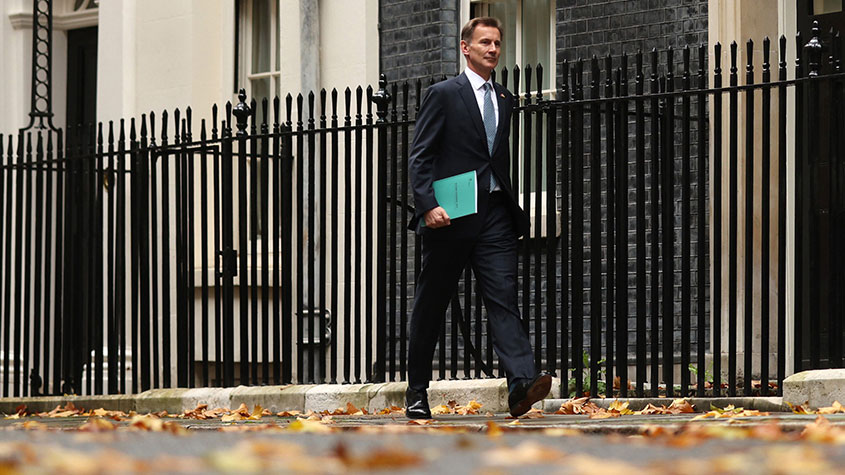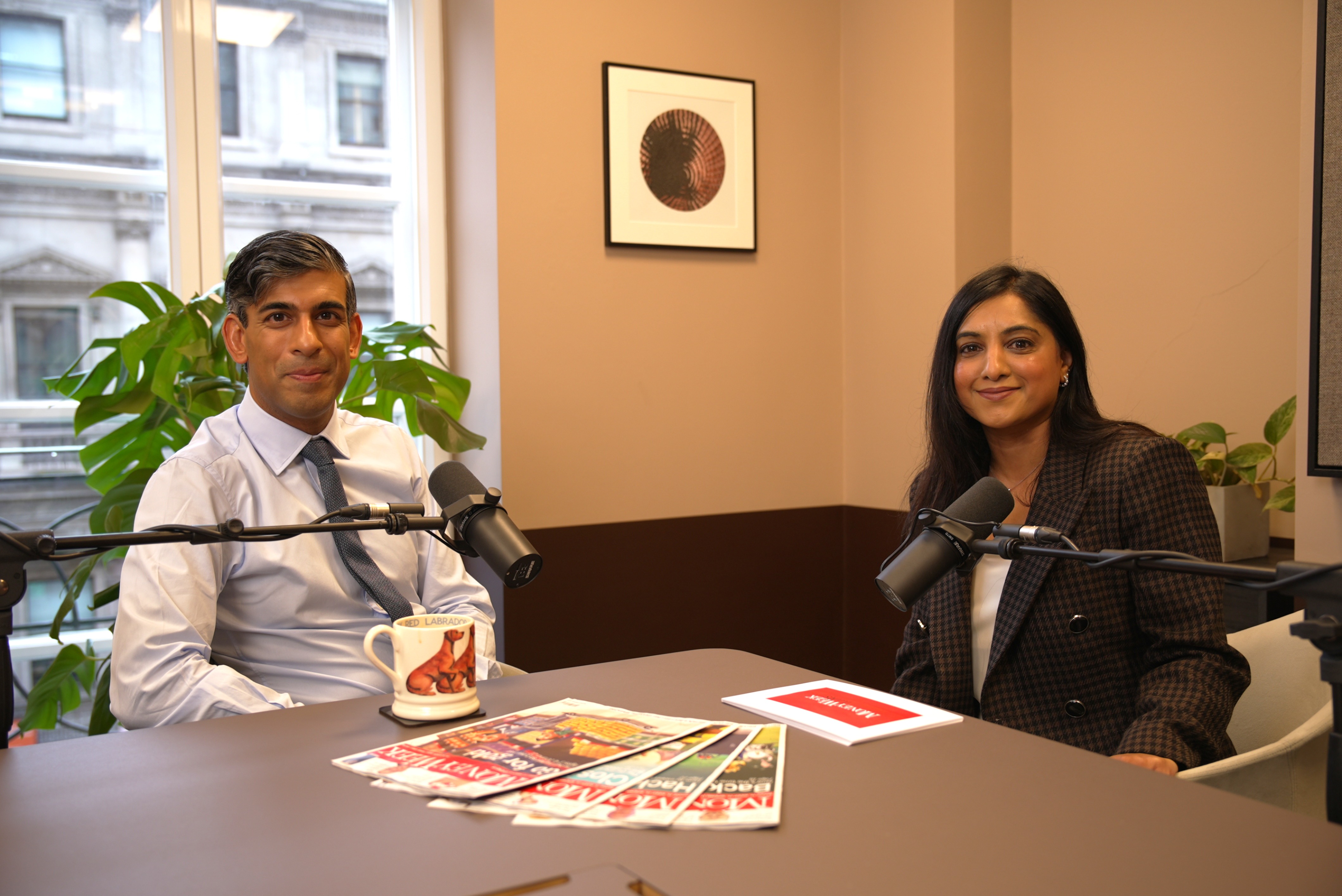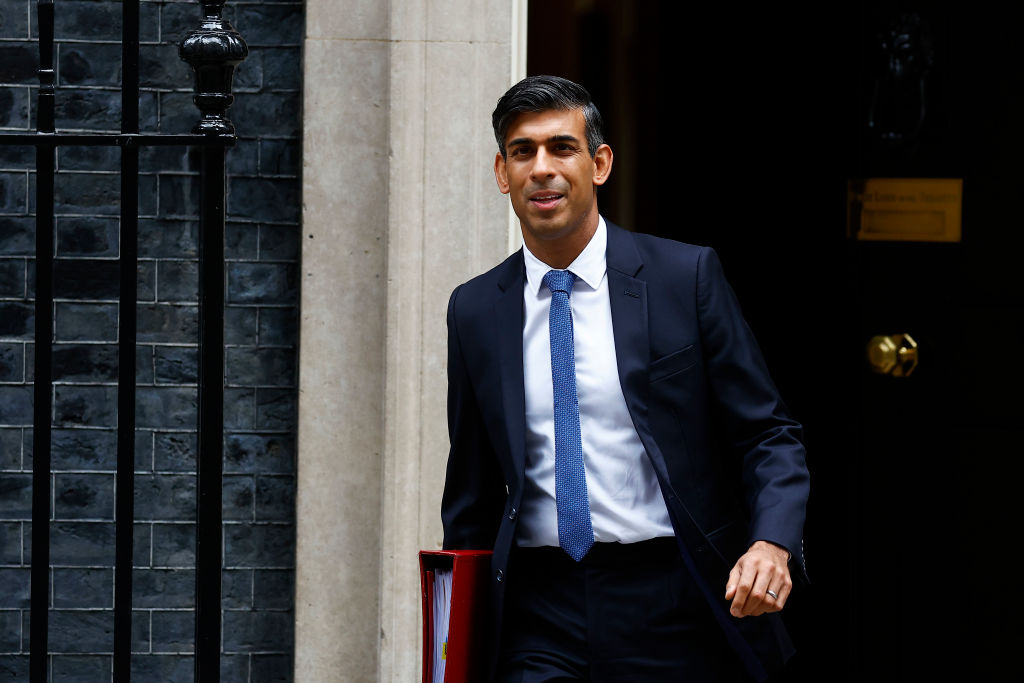Inheritance tax threshold capped until 2028
Hunt confirms IHT freeze in today’s Autumn Statement. What does it mean for you?


Get the latest financial news, insights and expert analysis from our award-winning MoneyWeek team, to help you understand what really matters when it comes to your finances.
You are now subscribed
Your newsletter sign-up was successful
Want to add more newsletters?

Twice daily
MoneyWeek
Get the latest financial news, insights and expert analysis from our award-winning MoneyWeek team, to help you understand what really matters when it comes to your finances.

Four times a week
Look After My Bills
Sign up to our free money-saving newsletter, filled with the latest news and expert advice to help you find the best tips and deals for managing your bills. Start saving today!
Chancellor Jeremy Hunt confirmed the threshold for inheritance tax (IHT) will be frozen for a further two years in his Autumn Statement today. The move is part of a string of tax freezes aimed at raising money for the government.
Sunak previously froze the threshold at £325,000 until April 2026 last spring when he was chancellor. Now Hunt has extended the freeze again, to April 2028.
This will drag more people into the inheritance tax net; analysis by accountancy firm RSM reveals 10,000 more families could end up paying IHT. The value of their estate will rise, however the threshold will remain the same meaning families will have to shell out a larger chunk of their money, especially as inflation in the UK hits a 41-year high of 11.1%.
MoneyWeek
Subscribe to MoneyWeek today and get your first six magazine issues absolutely FREE

Sign up to Money Morning
Don't miss the latest investment and personal finances news, market analysis, plus money-saving tips with our free twice-daily newsletter
Don't miss the latest investment and personal finances news, market analysis, plus money-saving tips with our free twice-daily newsletter
The £325,000 IHT threshold for individuals was set in 2009. By freezing it until 2028, the allowance will have remained the same for almost two decades.
“Freezing the threshold of inheritance tax for an additional two years will have a knock on effect for everybody - especially with the UK’s inflation levels hitting an all-time high this week,” says Tim Walford Fitzgerald, tax partner at accounting firm HW Fisher. More people will find themselves caught in the inheritance tax trap.”
According to the wealth manager Quilter, an extra £1bn in IHT could be paid from April 2026 to April 2028 if the chancellor goes ahead with the stealth tax raid next Thursday.
““With more people squeezed financially, we are likely to see a rise in ‘giving while living’ - lifetime gifting to loved ones, particularly to adult children who are struggling to get by in the cost of living crisis,” adds Naomi Neville, lifestyle and estates planning partner at Irwin Mitchell. “The extended freeze on thresholds means people will need to seek advice more than ever to protect their wealth and ensure it is passed on how they would like, without being caught by unforeseen taxes in the future.”
How much is IHT?
Inheritance tax is charged at 40% of a person’s estate above a tax-free allowance. A reduced rate of 36% is charged if the deceased leaves at least 10% of their assets to charity in their will.
The basic inheritance tax threshold – also called the nil-rate band – is £325,000. This means you can die and leave an estate worth less than this and the beneficiaries won’t have to pay a penny in inheritance tax.
You also don’t need to pay IHT if you leave your estate – or everything above the £325,000 threshold – to your spouse, civil partner, a charity or community amateur sports club.
In practice, many people leave their entire estate to their husband, wife or civil partner when they die. This means there is no IHT liability, and the partner also “inherits” the £325,000 allowance. When the partner dies, he or she has a joint £650,000 tax-free allowance.
Those with children or grandchildren that leave the family home to them benefit from a “residence nil-rate band”, which boosts the £325,000 allowance to £500,000. This means a couple could leave up to £1m IHT-free to their kids or grandkids.
Why is the government freezing the threshold?
The Treasury raises billions of pounds from IHT each year. Continuing to freeze the allowance will generate huge amounts of extra revenue, helping the government to raise the £58bn it currently needs to borrow to meet its spending commitments.
Myron Jobson, senior personal finance analyst at interactive investor, comments: “The government is desperately trying to find ways to plug the gaping black hole in public finances. Inheritance tax could be part of the solution for the government.
“The freezing of the nil-rate and residence nil-rate bands until at least April 2028 means the government’s IHT takings are likely to keep on rising.”
He calls the tax a “money-spinner” for the government, with £3.5bn collected between April and September 2022 – £400m higher than in the same period a year earlier.
If the £325,000 threshold had risen in line with CPI inflation since its inception in 2009, it would now be worth £464,643, according to the Bank of England’s inflation calculator. If it had been hiked in line with RPI, it would be worth £537,129.
Jason Hollands, managing director of the online investment and coaching service Bestinvest, says extending the current freeze on IHT thresholds would amount to a “significant wealth tax”. He adds: “Ever more people who would never have imagined being hit with death duties are finding that their parents or grandparents’ estates are becoming subject to these taxes, especially given the strong rise in property and share prices over recent decades.”
What else was announced in the Autumn Statement?
The top rate of income tax was cut from £150,000 to £124,140 while the income tax personal allowance and national insurance thresholds were frozen.
He also announced a cut for the dividend allowance, from £2,000 to £1,000 net year and then to £500 from April 2024.
Get the latest financial news, insights and expert analysis from our award-winning MoneyWeek team, to help you understand what really matters when it comes to your finances.

Ruth is an award-winning financial journalist with more than 15 years' experience of working on national newspapers, websites and specialist magazines.
She is passionate about helping people feel more confident about their finances. She was previously editor of Times Money Mentor, and prior to that was deputy Money editor at The Sunday Times.
A multi-award winning journalist, Ruth started her career on a pensions magazine at the FT Group, and has also worked at Money Observer and Money Advice Service.
Outside of work, she is a mum to two young children, while also serving as a magistrate and an NHS volunteer.
-
 Should you buy an active ETF?
Should you buy an active ETF?ETFs are often mischaracterised as passive products, but they can be a convenient way to add active management to your portfolio
-
 Power up your pension before 5 April – easy ways to save before the tax year end
Power up your pension before 5 April – easy ways to save before the tax year endWith the end of the tax year looming, pension savers currently have a window to review and maximise what’s going into their retirement funds – we look at how
-
 Rishi Sunak: MoneyWeek Talks
Rishi Sunak: MoneyWeek TalksPodcast On the MoneyWeek Talks podcast, Rishi Sunak tells Kalpana Fitzpatrick that we need better numeracy skills to improve financial literacy and boost the economy.
-
 Is an inheritance tax (IHT) cut on the way?
Is an inheritance tax (IHT) cut on the way?Tax Talk that the government might cut or scrap inheritance tax in its Autumn Statement is rife. We look at how it could be reformed, and what difference it would make.
-
 Act now to bag NatWest-owned Ulster Bank's 5.2% easy access savings account
Act now to bag NatWest-owned Ulster Bank's 5.2% easy access savings accountUlster Bank is offering savers the chance to earn 5.2% on their cash savings, but you need to act fast as easy access rates are falling. We have all the details
-
 Moneybox raises market-leading cash ISA to 5%
Moneybox raises market-leading cash ISA to 5%Savings and investing app MoneyBox has boosted the rate on its cash ISA again, hiking it from 4.75% to 5% making it one of top rates. We have all the details.
-
 October NS&I Premium Bonds winners - check now to see what you won
October NS&I Premium Bonds winners - check now to see what you wonNS&I Premium Bonds holders can check now to see if they have won a prize this month. We explain how to check your premium bonds
-
 Government considering cuts to inheritance tax, reports say
Government considering cuts to inheritance tax, reports sayThe Sunday Times reported government officials are considering cuts to inheritance tax ahead of the general election.
-
 The best packaged bank accounts
The best packaged bank accountsAdvice Packaged bank accounts can offer great value with useful additional perks – but get it wrong and you could be out of pocket
-
 Bank of Baroda closes doors to UK retail banking
Bank of Baroda closes doors to UK retail bankingAfter almost 70 years of operating in the UK, one of India’s largest bank is shutting up shop in the UK retail banking market. We explain everything you need to know if you have savings or a current account with Bank of Baroda